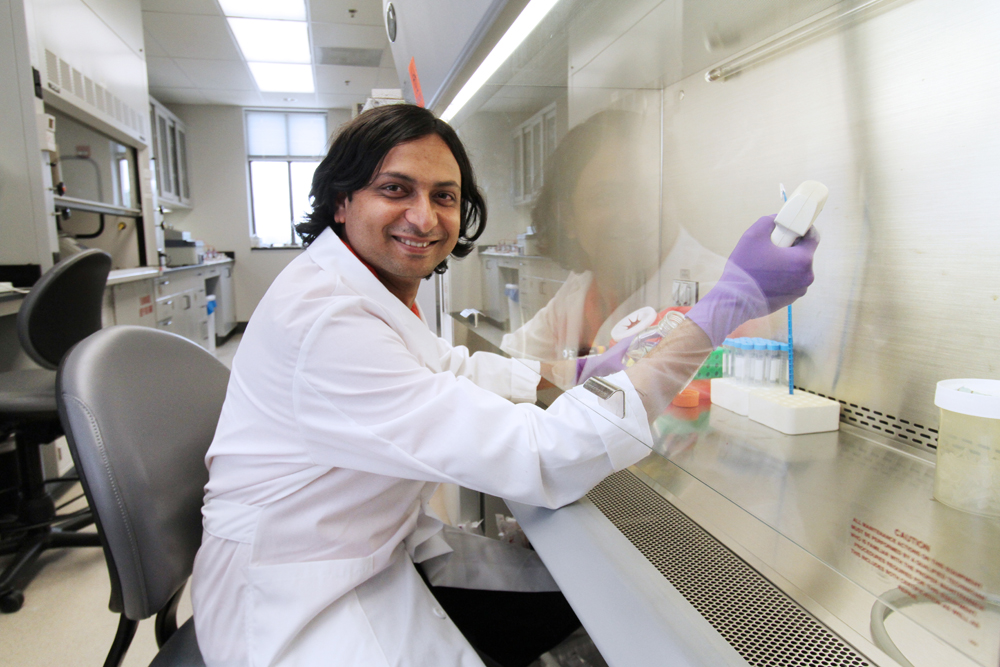Researchers explore genetic links between nicotine, cancer using 'next-generation sequencing'

Researchers at the Virginia Bioinformatics Institute have taken a closer look at the role that nicotine plays in cancer, finding new consequences of nicotine stress on breast tissue and insight into the influence of nicotine on normal cells.
Nicotine is the addictive chemical found in cigarettes, but researchers believe that it could have more influence than previously realized on the underlying genetics of cancer, according to a recently published study in the journal PLOS One. Tobacco smoke contains many chemicals, including nicotine, but nicotine stands out because of its widely accepted connection to cancer, especially lung cancer.
Using next-generation sequencing techniques, Jasmin Bavarva, a research geneticist and lead author of the study, showed more thoroughly how nicotine causes healthy cells to become cancerous and revealed new participation from previously unstudied genes.
Next-generation sequencing allows researchers to see a broad range of gene interactions in ways that supersede standard techniques, such as microarrays.
"The all-inclusive approach of next-generation sequencing is a game-changer, as it allows us to find previously unknown genetic links," Bavarva said.
Knowing how the genes interact can help researchers understand the complex nature of cancer and find treatments, the researchers said.
"The changes seen in cells after exposure to nicotine must make us now realize that nicotine is not just an addicting chemical, but it also is a gene-expression modulator, which may play a direct role in cancer development. We may need to rethink how we use it to treat tobacco addiction," said Harold R. Garner, a professor of biological science, computer science, and basic science affiliated with the College of Science, the College of Engineering, and the Virginia Tech Carilion School of Medicine, who led the research.




